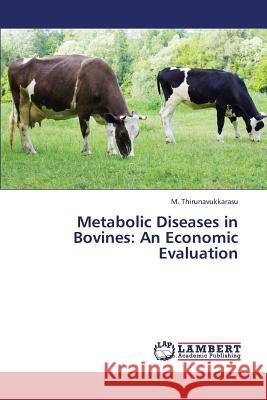Metabolic Diseases in Bovines: An Economic Evaluation » książka
Metabolic Diseases in Bovines: An Economic Evaluation
ISBN-13: 9783659296949 / Angielski / Miękka / 2013 / 128 str.
Intensification of livestock production systems have made the economic implications of diseases in livestock increasingly important. This is because, the diseases in livestock represent avoidable waste of the already scarce resources. Hence, procedures and tools for disease loss estimations are now infused into the studies concerning the field of animal health economics. However, documented evidences on the economics of important bovine diseases, more specifically metabolic diseases, which cause major financial setbacks to the farmers when their bovines just start returning them profits, are scanty. This book, "Metabolic Diseases in Bovines: An Economic Evaluation" deals with various aspects of epidemiology and estimation of disease losses, including the analyses of the factors predisposing to the economically important metabolic diseases such as milk fever and ketosis in bovines and estimation of economic losses associated with these diseases. Besides, the book also suggests various disease prevention strategies in the context of the losses estimated. These aspects make this book much useful to the epidemiologists, animal health economists, policy makers and animal researchers.
Intensification of livestock production systems have made the economic implications of diseases in livestock increasingly important. This is because, the diseases in livestock represent avoidable waste of the already scarce resources. Hence, procedures and tools for disease loss estimations are now infused into the studies concerning the field of animal health economics. However, documented evidences on the economics of important bovine diseases, more specifically metabolic diseases, which cause major financial setbacks to the farmers when their bovines just start returning them profits, are scanty. This book, "Metabolic Diseases in Bovines: An Economic Evaluation" deals with various aspects of epidemiology and estimation of disease losses, including the analyses of the factors predisposing to the economically important metabolic diseases such as milk fever and ketosis in bovines and estimation of economic losses associated with these diseases. Besides, the book also suggests various disease prevention strategies in the context of the losses estimated. These aspects make this book much useful to the epidemiologists, animal health economists, policy makers and animal researchers.











